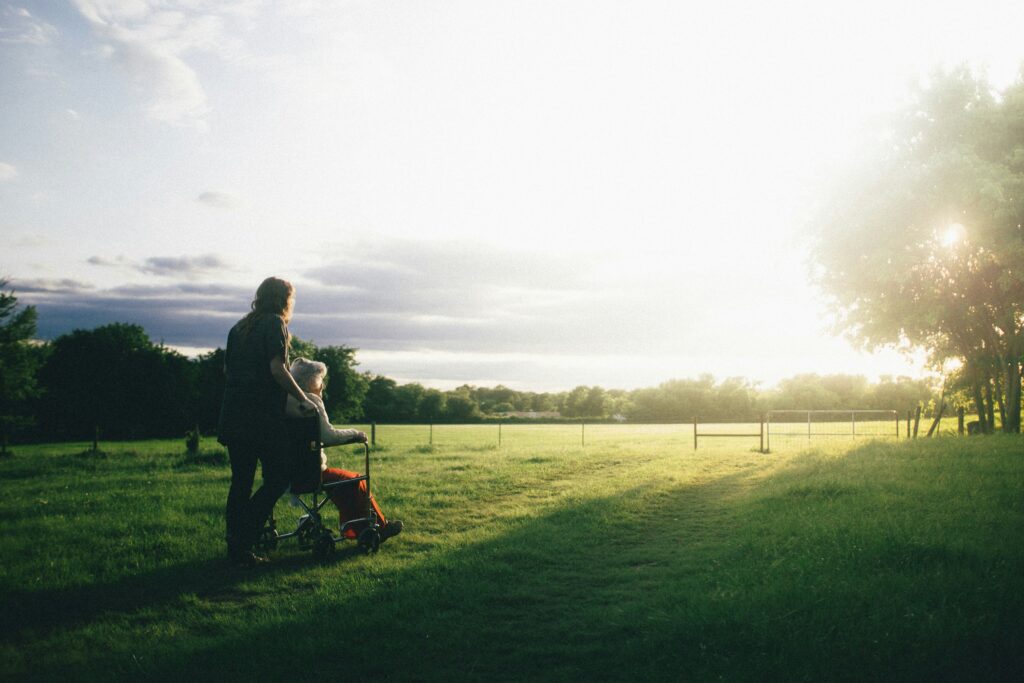In her role as Chaplain of Grace Mansion, a sober residence in Vancouver, Vienne Chan looks for creativity in incoming practicum students. “We love people who can think outside the box about how to engage people,” she says (Chan, 2018). Engaging people is what Grace Mansion does best, empowering its residents toward long-term wellness and independent living.
A Salvation Army initiative, Grace Mansion offers transitional housing to residents overcoming a variety of risk factors, including alcohol and drug misuse and homelessness (BC211, 2018). From meetings with residential workers to spiritual care, Grace Mansion offers recovery services to residents as they transition into independent living. As Chaplain, Vienne Chan helps oversee this mission, working closely with residents and resident workers.
Vienne notes how a fruitful partnership with Rhodes Wellness College helps Grace Mansion encourage long-term recovery among its residents. With a Grace Mansion practicum, our students develop in-field knowledge and abilities—even exercising the creativity Vienne prizes (Chan, 2018).
Are you curious about Grace Mansion—and how Rhodes Wellness College students are helping? Keep reading to learn more from Vienne Chan.
Grace Mansion Offers Sober Second-Stage Housing
Vienne notes how Grace Mansion was “conceived for the purpose of providing support for those who were coming out of recovery programs.” The second-stage residence was developed to support those transitioning from intense recovery programs to independent living without drugs and alcohol. Housing residents for up to two years, Grace Mansion offers a number of services including the Personal Development Plan (PDP), which helps residents set life goals. Residents also benefit from meeting with residential workers, parish nursing services, and spiritual care (Salvation Army, 2014).
In addition to drugs and alcohol misuse, Grace Mansion helps residents transition beyond domestic abuse and homelessness. Bridging all these services, Vienne highlights the importance of mental wellbeing, since Grace Mansion houses “a lot of people who are working on stabilizing their mental health” (Chan, 2018). With many residents seeking to return to work or school, Vienne says Grace Mansion helps them envision long-term wellness, “walking alongside with them to navigate that world” (Chan, 2018).
Rhodes Wellness College Students Play an Important Role
Grace Mansion has hosted practicum students from our wellness college, tapping into their unique training and offering them invaluable experiences. Vienne notes how open our practicum students are. “You never feel like you’re pulling teeth,” she says. “They’re very open with their lives and very honest” (Chan, 2018).
In particular, Grace Mansion has called upon students in our life coach training course, valuing their engaging presentation skills. Vienne explains that student-hosted workshops have covered topics like boundaries, anger, and communication. She says our practicum students are effective in “teaching a lot of skills and encouraging people to learn about different things” (Chan, 2018). “We definitely are always looking for practicum students,” she adds (Chan, 2018).
Vienne notes how our students find creative ways to engage residents, and says “some sort of background in the arts is always fabulous” (Chan, 2018). “We love creative ideas,” Vienne says, noting how successful these approaches have been in the past (Chan, 2018).
Vienne Discusses the Future of Wellness Work
Vienne sees her field broadening its scope and approaches, embracing the fact that no single program will solve all problems: “it’s a larger and longer process than that” (Chan, 2018). She sees professionals imparting more ‘soft skills’ for long-term recovery—a key consideration for anyone becoming a life coach. Vienne also highlights a more integrative approach toward addictions and mental health wellness, explaining that drugs and alcohol act as “a band aid for all sorts of things.” Accordingly, “a big piece is de-stigmatizing addiction, but also mental health” (Chan, 2018).
When asked about advice she would give future wellness professionals, Vienne highlights non-judgement and de-stigmatization. “For a lot of people it’s very black and white,” she says, adding that preconceived judgements should be checked at the door. This goes hand-in-hand with listening (Chan, 2018). “When you’re in counselling,” Vienne says, “that’s a big part of the picture: a lot of listening.” She says that wellness professionals should remain humble and attentive, since they “have a lot to learn too—and a lot to learn from the people that we’re working with” (Chan, 2018).
As for the focus of this addictions and recovery work, Vienne advises students to “teach what you know—and teach what you’re passionate about.” “Teach the things that you found most helpful to you,” she adds, “because it’s those things that people will catch on to” (Chan, 2018).
Are you looking for a wellness college that offers crucial in-field training opportunities?
Contact Rhodes Wellness College to get started!
Works Cited
BC211. (2018). Grace Mansion. Retrieved from: http://redbookonline.bc211.ca/service/9508613_9508613/grace_mansion
Chan, V. (2018, June 13). Rhodes Wellness College Partner Spotlight: Grace Mansion. (O. Higgins, Interviewer).
The Salvation Army. (2014). Grace Mansion – Program Services. Retrieved from: http://www.gracemansion.com/services.htm










